KU-GLOCS is the general term referring to various globalization initiatives by Kanazawa University,
including its participation in the Top Global University Project (Super Global Universities).
KU-GLOCS
KU-GLOCS is the general term referring to various globalization initiatives by Kanazawa University,
including its participation in the Top Global University Project (Super Global Universities).
Kanazawa University's SGU project
Seven strategies for realizing the vision
-

Realizing the KU brand of education based on KUGS, centered on the Institute of Liberal Arts and SciencesFaculty of International Arts and Science and quarter system - Establishing the Institute of Liberal Arts and Sciences
- Adopting a quarter system throughout the entire university in the 2016 school year
- Assigning specialized faculty to the Institute of Liberal Arts and Sciences
Developing a new curriculum based
on KUGS- Implementing thorough curriculum reforms based on KUGS
- Planning and implementing general education, undergraduate GS courses, and graduate school GS courses
- Also modifying admission policy, curriculum policy, and diploma policy in all undergraduate and graduate programs to match KUGS
- In general education, setting up courses to teach the abilities identified in KUGS as GS courses
- Ensuring that all students can acquire the standard skills identified by KUGS, no matter what program they are enrolled in
- Packaging GS courses as requirements and adopting a principle of active learning
- Establishing a Skill-up Center(*1) to improve faculty teaching skills
- Preparing Japanese- and English-language editions of the texts and teaching materials in all courses to standardize the content and quality of GS courses
Improving students' English abilities
and sending students abroad- Improving English communication abilities under the leadership of the Institute of Liberal Arts and Sciences
- Adopting a quarter system and focusing on English in the courses of the first quarter of the first year
- Encouraging participation in programs to enhance students' human power, such as short-term study abroad programs in the second quarter
- Sending students who have acquired basic English skills on short-term study abroad programs
(*1)Skill-up Center: An organization intended to improve faculty teaching skills. The center will teach topics such as methods of putting active learning into practice in the classroom.
-
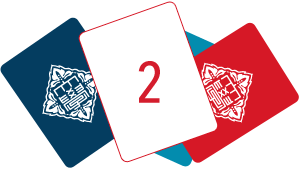
Accelerating globalization of undergraduate education, with the School of International Studies serving as a model programGlobalization of undergraduate majors - Applying the results of various international programs in the School of International Studies to other schools, using the adoption of the quarter system to accelerate globalization of undergraduate courses so that in 10 years 50% of undergraduate courses will be conducted in English
Developing global-standard educational programs
in all courses- Developing multiple international programs based on mutual recognition of units earned in fields with high levels of demand in international society. Adopting at least 49 international programs in total by the target of 10 years from now, with at least one in each course. In the future, developing joint degree programs(*2) integrating classes through joint recognition of units and developing curricula to enable students to experience an international environment while in Japan.
- Setting up multiple submajors(*3) consisting only of courses conducted in English in each college, and awarding certificates to students who complete them
(*2)Joint degree program: A program that awards a degree from each participating university, in Japan and overseas, through joint development and implementation of educational courses by multiple universities and use of mutual recognition of units earned(*3)Sub-major: A group of courses enabling students to study outside their own colleges or schools, to broaden their horizons and learn flexible thinking and application abilities through interdisciplinary learning
-
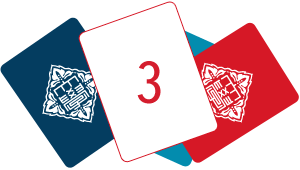
Setting up a special education/research zone to enhance research capabilities, and advancing postgraduate education and research in response to globalizationDeveloping international centers in research fields
where KU has an advantage- Setting up "Institute for Frontier Science Initiative" to promote interdisciplinary research to address global challenges, as international joint research
- At "Institute for Frontier Science Initiative", adopting a research professor system using annual salaried positions to promote research projects in partnership with leading overseas research institutions and using a tenure-track system(*4)for young researchers to strengthen the university's research abilities
Educating outstanding graduate students - Choosing particularly capable graduate students from the top performers (10%) in each graduate school and providing economic assistance and interdisciplinary education at "Institute for Frontier Science Initiative" as well as sending them to outstanding research institutions abroad, to train them in the teaching methods needed for future educators as advanced teaching assistants.
(*4)Tenure track system: A system under which young researchers chosen through a fair and highly transparent selection process can build on their research as independent researchers with fixed terms of employment before acquiring stable positions following screening.
-
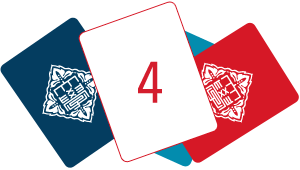
Enhancing international education and research networks as well as KU's overseas facilitiesResearch exchange through use of a sabbatical system - Using a sabbatical research system(*5)to enhance ties with overseas research institutions on a one-to-one basis and develop future inter-organizational exchange
Development of overseas facilities - Developing overseas facilities in each region where KU staff will be on permanent assignment
- In the future, developing these into overseas satellite campuses with KU faculty on permanent assignment as well
Enhancing overseas alumni associations - Enhancing the functions of overseas alumni associations to strengthen relations among graduates and former students living abroad and gain their cooperation in recruiting students and publicizing KU
- Enhancing the collaborative professor system for faculty members at overseas universities with KU roots and others
(*5)Sabbatical system: A system under which a faculty member with at least seven years' service can take a year's sabbatical to concentrate on research
-
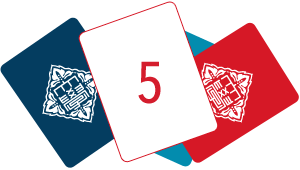
Setting up the Kanazawa University Super Global ELP Center of the Tufts University English Language Programs and enhancing English-language educationRaising the level of English abilities
among all KU faculty, staff,
and students- Improving faculty's ability to each courses in English, improving administrative staff's English abilities, and increasing the number of courses taught in English
- Setting up the Kanazawa University Super Global ELP Center with the Tufts University English Language Programs, renowned for their high-quality English education, on the KU campus
- Utilizing the Kanazawa University Super Global ELP Center with the Tufts University English Language Programs to build a foundation to enable KU to advance its internationalization independently through teaching faculty methods of teaching in English, teaching staff business English, and improving students' English abilities in preparation for studying abroad
Quality assurance in education
based on global standards- Establishing syllabi, numbering systems(*6), teaching methods, and evaluation methods in partnership with Tufts University
- Participating in Tufts University's international educational network
(*6)Numbering system: A system of numbering courses to indicate attributes such as their interconnectedness and degree of difficulty
-
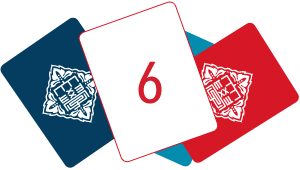
Driving globalization in the community through the hands-on program extending beyond community boundaries and partnership with the SGH program(*7)Cooperative education with the community - Cooperating with Ishikawa Prefecture, which has a well-developed infrastructure for acceptance of international students, to implement Hands-on program extending beyond community boundaries. Making this program a requirement for international students.
- Deepening international students' understandings of Japanese culture by providing opportunities for all international students at KU to interact directly with the local community together with Japanese students.
- Expanding internship opportunities for the undergraduate students at local and overseas corporations, in order to increase the number of students who find employment in international corporations.
Enhancing internships with local firms and internships abroad
in undergraduate programs, to improve students' career potential
in global markets- Utilizing KU's network of affiliated schools from kindergarten through high school to educate faculty able to adapt to globalization in primary and secondary education
- Building a new model for linking high school with university (SGU-SGH partnership) through activities such as exchange with the increasing numbers of international students at KU, to realize synergies in globalization with partnership with Kanazawa University Senior High School (chosen for the SGH program).
(*7)SGH: Super Global High School, a program of the Ministry of Education, Culture, Sports, Science and Technology intended to support high schools working to educate global human resources through means including development and implementation of high-quality curricula. Kanazawa University Senior High School has been designated an SGH program school.
-
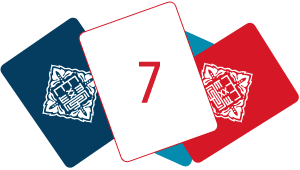
Swift, powerful governance reforms under the leadership of the University President- Advancing strong governance reforms centered on university management and faculty HR systems, under the leadership of the University President
- Based on developments such as redefinition of the KU mission, restructuring overall policies on reform and the educational organization of each unit, allocating university budget in strategic and targeted ways, and deciding on measures such as priority assignment of human resources and spaces
- Actively promoting the adoption of new employment systems such as the research professor system and the mixed salary system
- Establishing a Faculty HR Strategy Committee under the leadership of the University President and discussing and reviewing each unit's faculty assignment plans from a university-wide perspective, to establish a faculty HR system making the most of the President's leadership